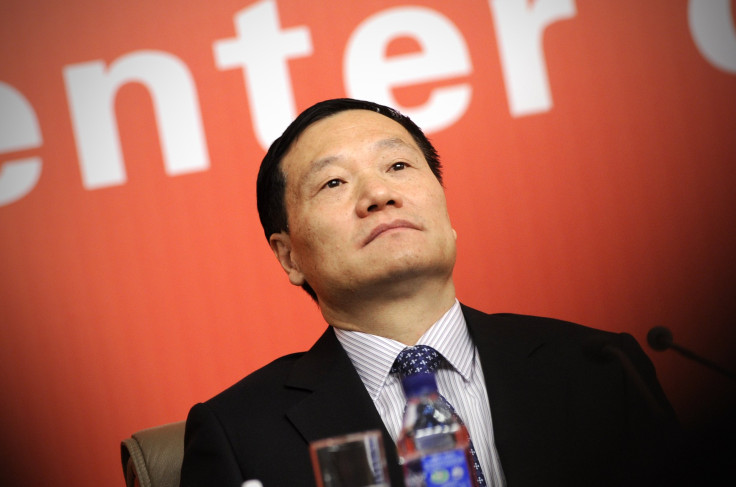China’s Chief Securities Regulator To Step Down, Paying Price For Market Turmoil

UPDATE: 1:38 a.m. EST — China removed Xiao Gang from his post as the head of its securities regulator, and appointed Liu Shiyu to take on the role, state-run Xinhua News Agency reported Saturday.
The decision was made by the Communist Party of China Central Committee and the State Council, Xinhua said. Liu, 54, was previously heading the Agricultural Bank of China and was a former deputy governor of People's Bank of China.
Original story:
The head of China’s security regulator is to step down from his post after a period of chaos on the country’s stock markets that has been fanned by regulatory blunders, the Wall Street Journal reported.
Xiao Gang has been the head of the China Securities Regulatory Commission (CSRC) since 2013. The end of his tenure at the agency is expected to be officially announced within days, the Journal reported.
Xiao’s downfall comes after repeated criticism of his management of the agency in recent months, from both investors and party officials. He was responsible for implementing the disastrous circuit breaker mechanism designed to curb volatility on China’s stock markets by suspending trading if shares dropped below a certain limit. The mechanism had the effect of increasing panic selling, rather than allaying it, and was discontinued after four days in use, resulting in Xiao having to justify his actions to senior members of China’s leadership.
Xiao had already been subjected to criticism from senior figures over the stock market crash in the summer of 2015, which shook global confidence in both China’s economy and the government’s economic management skills.
China’s stock market is down about 45 percent from its June peak and around 19 percent so far this year.
“There has to be responsibility. People are looking to the leader at the regulator. Xiao Gang is the public face,” said Fraser Howie, an independent China market analyst told CNBC in the aftermath of the circuit breaker incident.
“He was lucky to keep his job after the fiasco of July and August,” he added.
Rumors of both Xiao’s dismissal and resignation also had been reported for months. In the aftermath of January’s stock turmoil, there were rumors he was to lose his job, and also reports he had repeatedly submitted his resignation, only to have it rebuffed.
In addition, earlier this month, the CSRC received a warning from China’s anti-corruption agency, which has been carrying out a wide-ranging purge on official corruption. The regulator was criticized for what was seen as merely paying lip service to some to anti-graft rules and insufficient oversight over certain “sensitive” posts, Reuters reported.
Though the “sensitive” posts in question were not named, it is possible this was a veiled reference to the case of Yao Gang, the agency’s top official after Xiao, who has been under investigation by anti-corruption investigators since November.
To date, there is no indication Xiao’s apparent downfall is connected to the anti-corruption purge.
Xiao had previously sought to cast a wide net in assigning blame for the turmoil on China’s stock markets. While defending his own handling of recent volatility last month, Xiao blamed an immature market, inexperienced investors, flawed mechanisms and inappropriate supervision for China’s market woes.
His departure at this time may be connected to renewed efforts by Chinese authorities to restore confidence in the economy. The effort began last week, as the governor of China’s central bank tried to calm markets by saying there was no further basis for devaluation of the yuan, and sought to allay concerns about the country’s large but diminishing foreign exchange reserves.
Some officials had expressed sympathy for Xiao anonymously, with one telling the Financial Times his staff and agency were not up to the task.
“Xiao understands markets and is very experienced, but now he has an organization whose staff don’t have the experience and advantages he’s got and don’t necessarily see things the way he sees things,” one official said.
“His levers to get things done and make things happen simply aren’t the same [as in his previous banking role].”
Other market sources told CNBC the CSRC was not entirely to blame for the turmoil on China’s markets, saying other agencies had made missteps and the Beijing leadership backed measures imposed by the agency.
Xiao is to be replaced at the CSRC by Liu Shiyu, who is currently chairman of the Agricultural Bank of China and a former deputy governor of the Chinese central bank, the Journal reported.
© Copyright IBTimes 2024. All rights reserved.





















